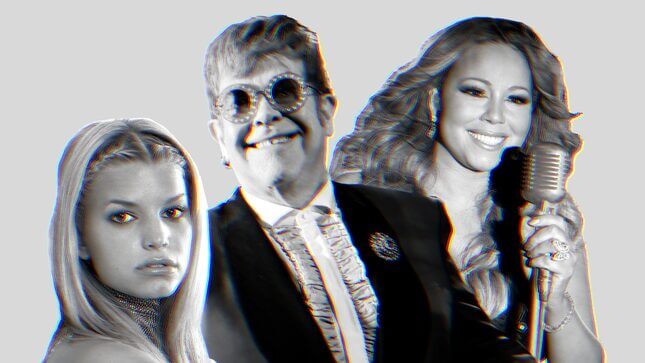The Trashy, Uncomplicated Beauty of the Celebrity Memoir
In Depth
Graphic: Elena Scotti (Photos: Getty Images)
I once thought of, “Shut the fuck up,” as one of the nastiest things one could say to another person; now I say it to myself regularly. This is progress: I have spent so long building myself in my head, only to realize that there is great happiness and calm in quieting the near-constant internal narration that accompanies my every action and inaction. Science agrees: The brain’s default mode network system is thought to be responsible for your inner monologue; an overactive DMN has been linked to depression and anxiety, and too much chattering inside can mean rumination, self-critique, and/or an inflated ego.
There are many ways in which we can attempt to untether the self from ourselves. Meditation and psychedelic drug therapy are two. During this pandemic, I believe I’ve stumbled upon another: Listening to celebrity memoirs on audiobook.
This year, it’s been therapeutic to put myself on hold and inject Elton John’s thoughts on voyeurism directly into my head, effectively watching him watch: “That was where my sexual pleasure came from, getting a bunch of people who wouldn’t normally have sex with each other, to have sex with each other.” And to hear about Val Kilmer’s process, theories on why acting is essential, and repeated references to his alma mater as “The Juilliard.” And to trace Leah Remini’s trajectory with Scientology from believer to effective prisoner to Tom Cruise-smearing apostate.
To be clear, this is not a scientifically proven method of dismantling one’s ego, and I realize that it’s perhaps a temporary fix. It involves merely supplanting one narrative—your own—with another in the highly curated and idealized form of a celebrity talking about their life and accomplishments. “I never felt pretty enough, thin enough, or good enough; my fans disagreed,” beamed Belinda Carlisle straight into my brain. I can’t relate, but now I know such a thought exists.
-

-

-

-

-

-

-

-

-

-

-

-

-

-

-

-

-

-

-

-

-

-

-

-

-

-

-

-

-

-

-

-

-

-

-

-

-

-

-

-








































